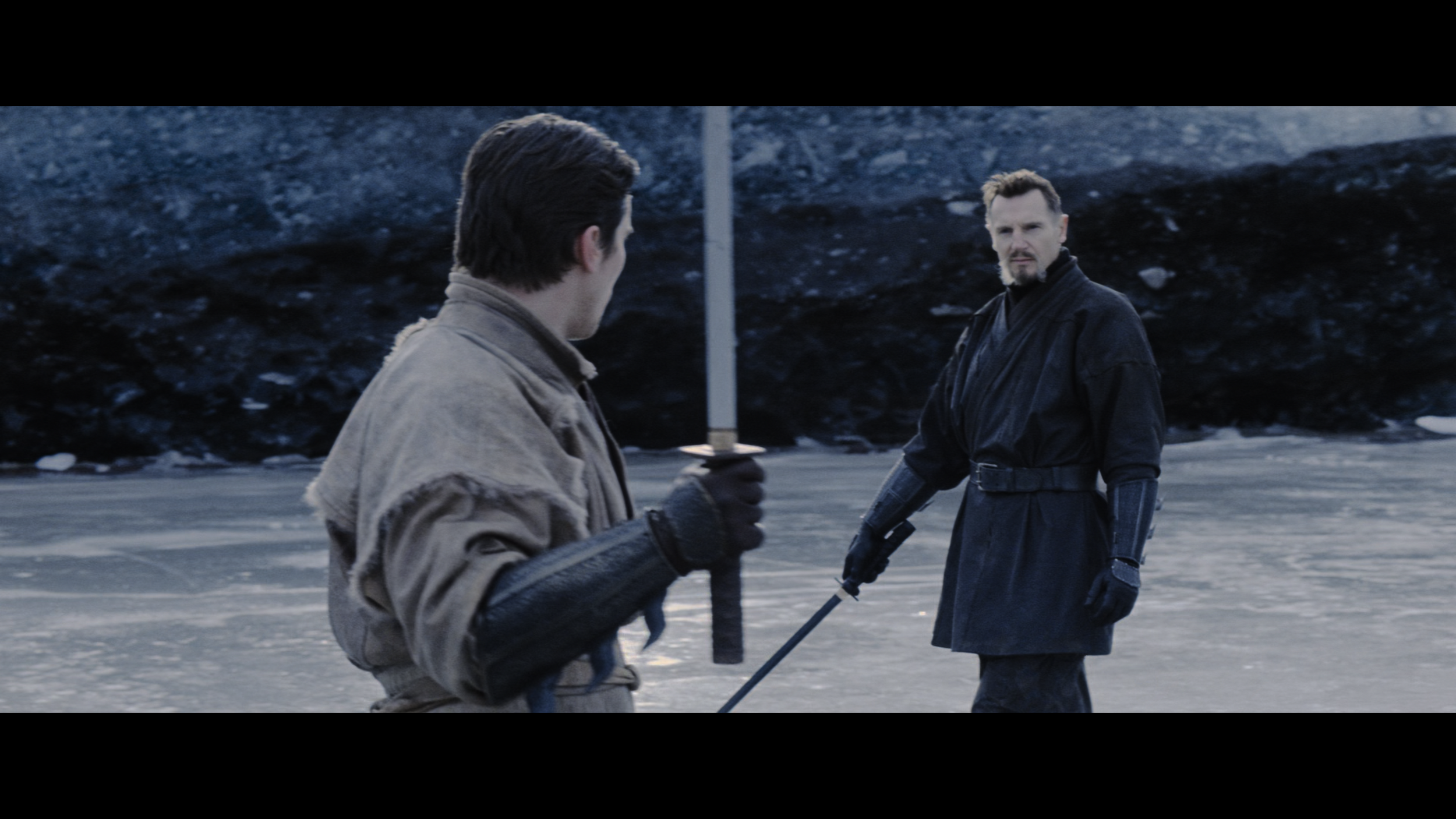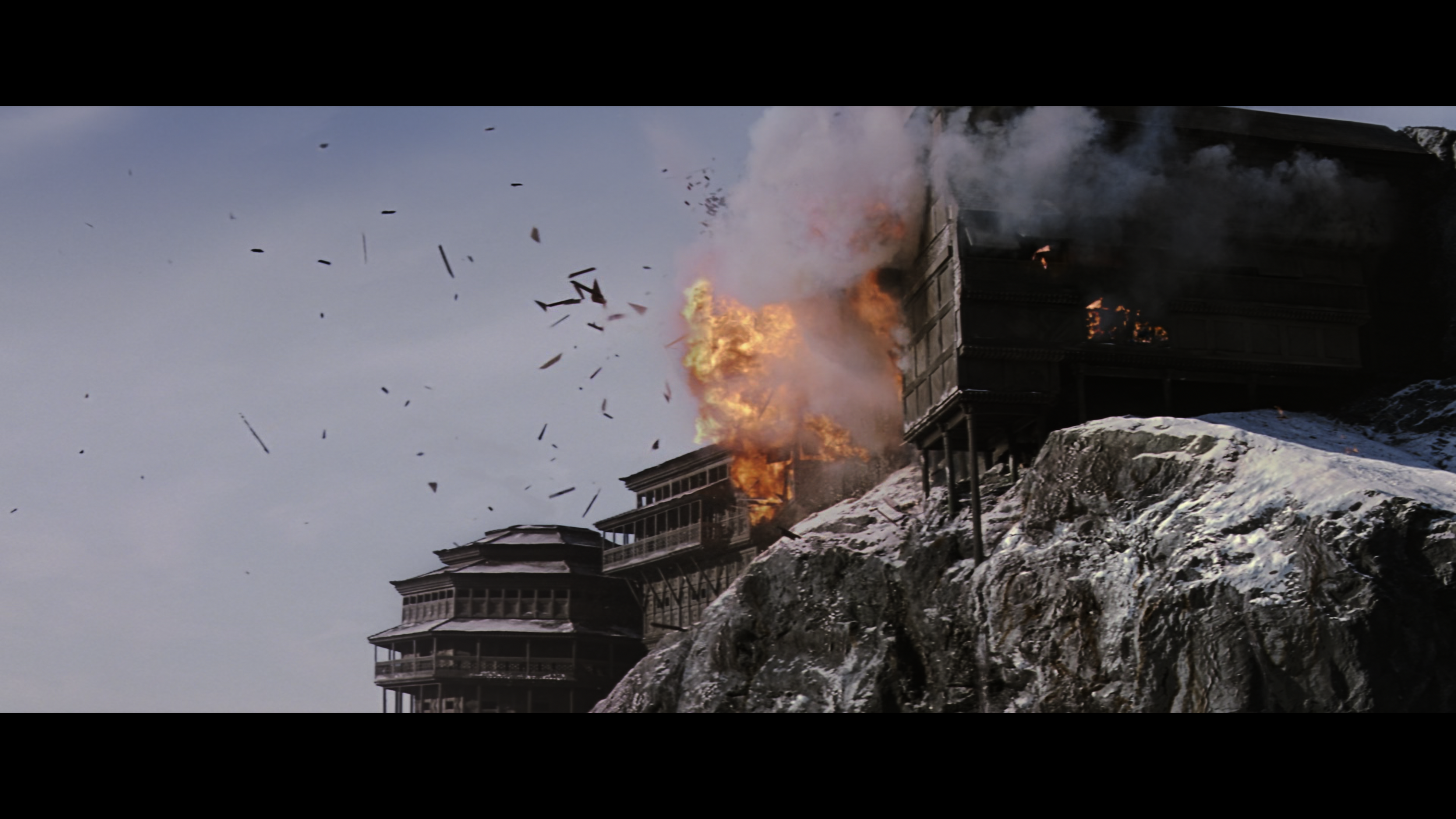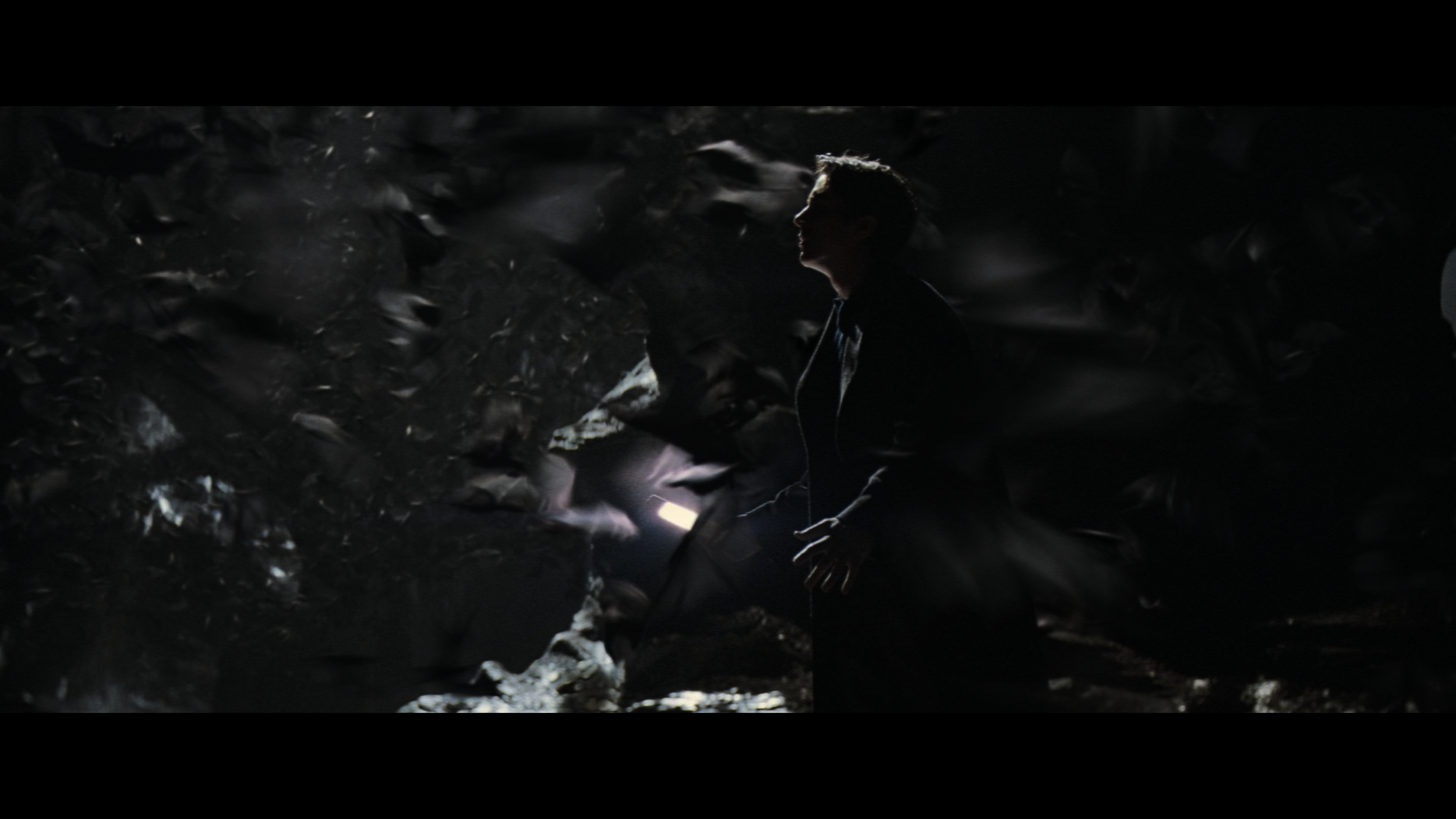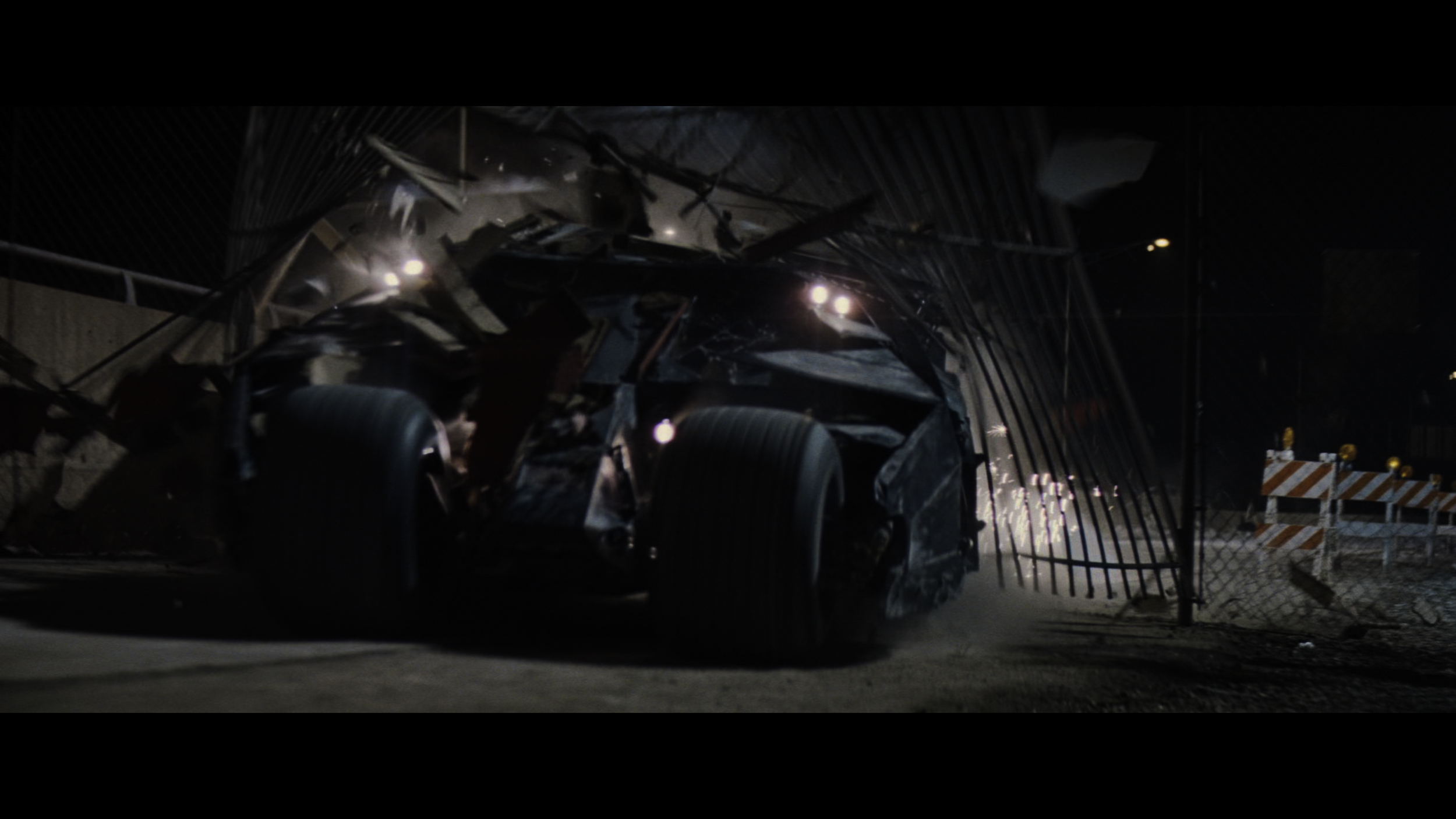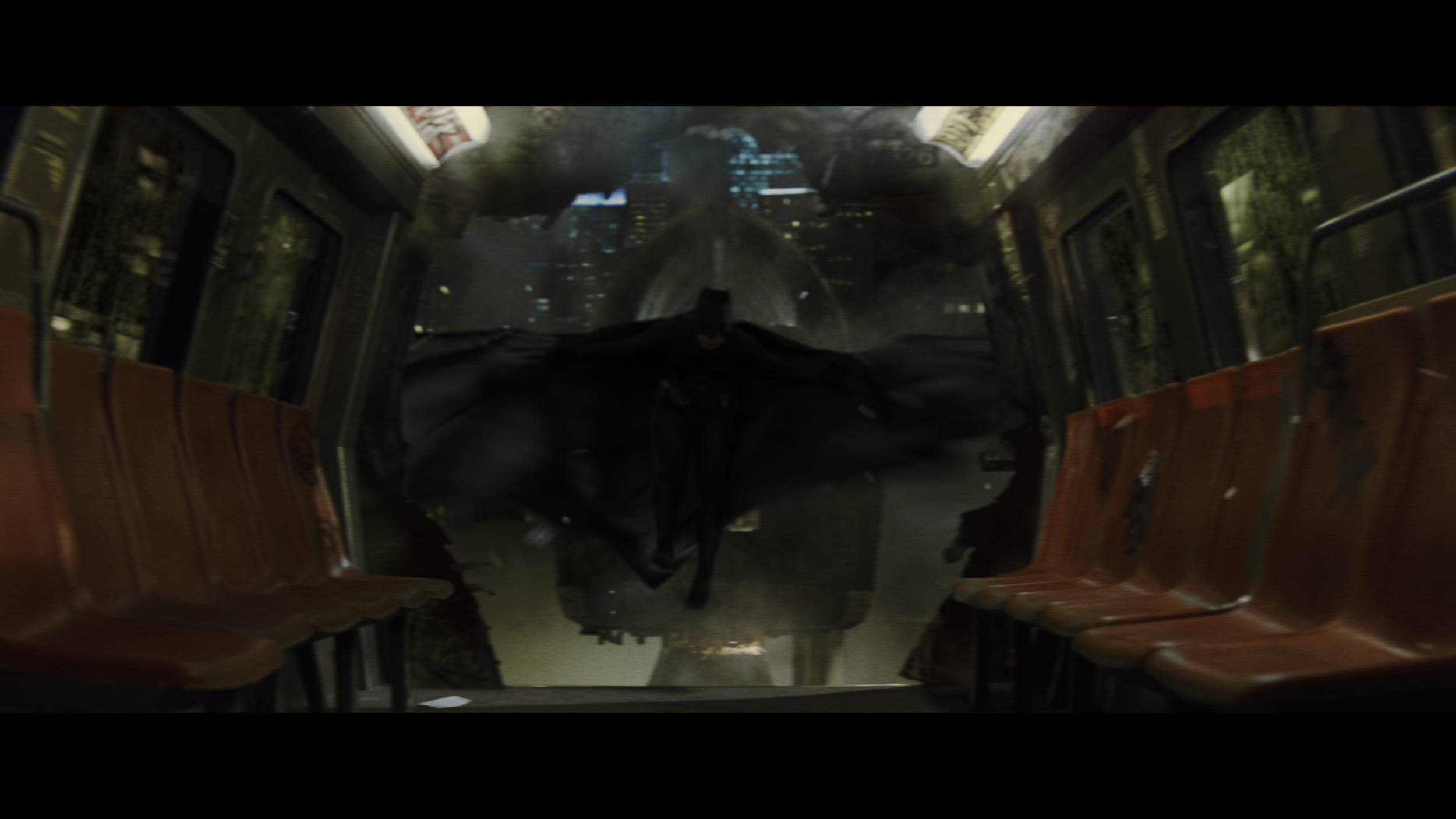Batman Begins (2005)
“Batman Begins” transcends the typical superhero film by becoming a meditation on justice, fear, and the masks we wear to confront a fractured world. Christopher Nolan’s vision, rendered in gritty anamorphic 35mm, isolates Bruce Wayne (Christian Bale) in shallow depths of field, his face often framed in tight close-ups that mirror his emotional seclusion. The camera often lingers on Wayne’s haunted eyes, a visual refrain that underscores his journey from orphaned rage to disciplined purpose.
Nolan’s non-linear first act, a tapestry of flashbacks to Wayne’s childhood trauma and his globetrotting apprenticeship with the League of Shadows, eschews traditional hero origins for a psychological mosaic. This is a Batman who earns his cape through introspection, not just action set pieces.
The film’s thematic core lies in its rejection of vengeance as a moral compass. While Gotham’s corrupt institutions—police, courts, and even Wayne’s own boardroom, peddle fear and complacency, Batman emerges as a symbol of accountability, not executioner. His refusal to kill, even when confronting Ra’s al Ghul (Liam Neeson), transforms him into a paradoxical figure: a vigilante bound by ethics. This distinction elevates the character beyond mere comic book theatrics, positioning him as a rebuttal to the nihilism of later antiheroes.
Nolan’s Gotham is a mirror, its grime and grift reflecting systemic rot that feels unnervingly contemporary. The Trumpian parallels are unavoidable in 2025: a cabal of powerful men weaponizing fear to silence dissent, their loyalty bought through intimidation. Commissioner Gordon (Gary Oldman), one of the few uncorrupted, embodies the quiet resistance of those who refuse to normalize decay. The film argues that symbols matter—Batman’s cowl isn’t a disguise but a beacon, proving that one person’s resolve can fracture apathy.
If the climax leans into blockbuster spectacle (a monorail chase, a microwave emitter threatening the city), it never loses sight of its philosophical stakes. Hans Zimmer’s score, throbbing with tribal percussion, amplifies the primal clash between order and chaos. Yet the film’s true triumph is how it marries blockbuster scale with intimate stakes. When Wayne tells Rachel (Katie Holmes), “It’s not who I am underneath, but what I do that defines me,” he captures the essence of heroism. It’s not destiny, but choice.
“Batman Begins” showcases many of Nolan's signature stylistic and thematic preoccupations that would define his filmography. The non-linear narrative structure, particularly in the first act's use of flashbacks to Bruce Wayne's childhood, echoes the temporal experiments of “Memento” while prefiguring the more complex chronological manipulations in later works like “The Prestige” and “Inception.”
The film's exploration of psychological trauma, fear, and obsession establishes themes that would become hallmarks of Nolan's work. Like his protagonists in “Memento” and “Insomnia”, Bruce Wayne is an emotionally disturbed, obsessive character grappling with guilt and loneliness. The way Nolan grounds fantastical elements in societal issues like corruption and economic inequality would become a defining characteristic of his later films, particularly evident in “The Dark Knight Rises” and “Interstellar.”
Visually, Batman Begins marks Nolan's first major exploration of urban landscapes as both physical and psychological spaces, an approach he would refine in “The Dark Knight” through his study of Michael Mann's “Heat.” His insistence on practical effects and realistic textures, even when building elaborate sets to recreate Gotham's streets, established a filmmaking philosophy that would reach its apex in later works like “Inception” and “Tenet.”
The film's meditation on symbols and reality versus perception would become central themes throughout his subsequent works, particularly in how he explores the relationship between spectator and screen.
Most importantly, this is a Christopher Nolan film and his complex vision is what elevates this above all other Batman movies. “Batman Begins” reshaped superhero movies by treating its audience as intelligent thinkers, not just consumers. While “The Dark Knight” is widely considered a superior film, I would put both of these films on equal footing.

